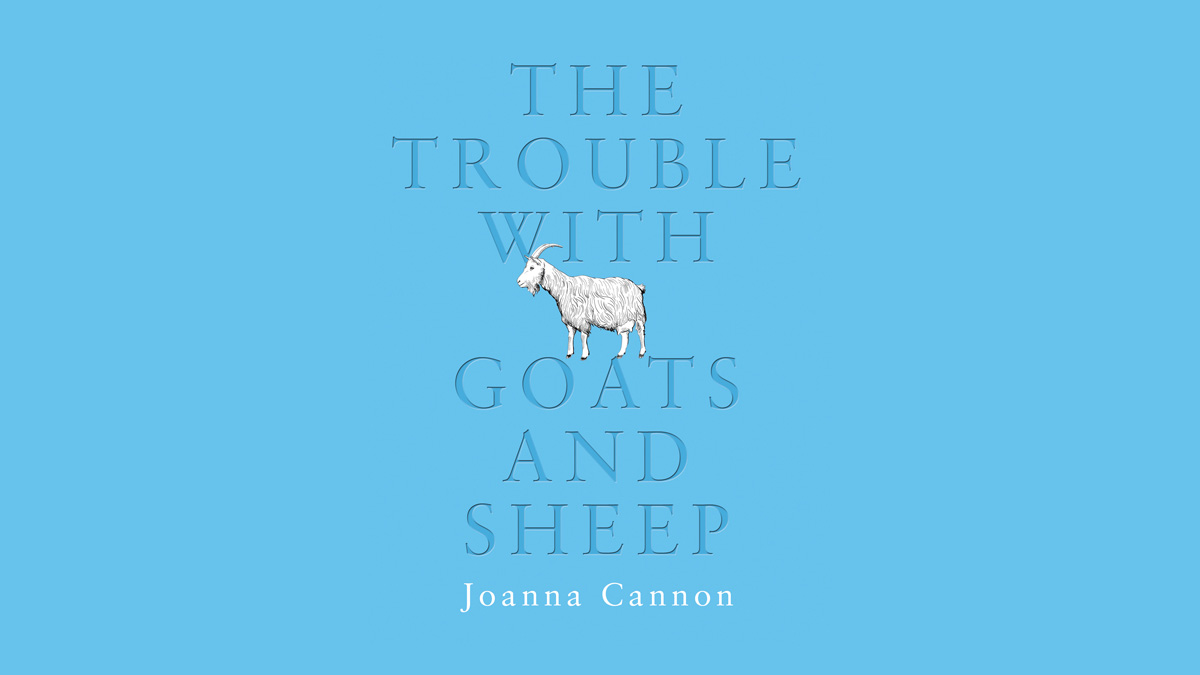
THE GREATEST OF THESE
Written to coincide with the launch of her debut novel, The Trouble with Goats and Sheep, read part five of Joanna Cannon’s serialised seven part short story. Part one can be read at Litro, part two at Bookanista, part three at For winter nights, part four at The Writes of Woman, part six at The Debrief and part seven at London Review of Books.
As I watched, tiny flakes began twisting through the air. At first, I thought it was just spray from the digging, a powdery mist that seemed to appear whenever the snow was disturbed, but when I looked up, I realised they were beginning in the sky. Far above anything I could see, floating down on us from nowhere. My father always said that the big, shouty flakes were harmless and melted easily, that it was the small, silent ones you had to watch out for. The ones that seemed quiet and innocent. Because, before you realised it, they had taken over everything.
‘It’s snowing again,’ I said to Tilly.
‘I know. Perhaps it will never stop. Perhaps we’ll never have to go to school again.’
And we laughed and held our mouths open, and trapped winter on the tips of our tongues.
The butterfly seemed to like Mr Dhillon. Perhaps it was his brightly coloured jacket, or the way he never stopped smiling, or perhaps it was because he spoke to it in a language only the butterfly could understand.
‘Maybe it’s because Mr Dhillon doesn’t question it?’ said Tilly.
I thought Tilly was right (although I try not to agree with Tilly too often, because it doesn’t do for a person to become too big-headed). Mr Dhillon didn’t tell the butterfly it didn’t belong in January, or ask where it had come from, he just accepted that it was there. He did, however, agree with Eric Lamb. It was a symbol of new beginnings. Of hope.
‘What kind of butterfly do you think it is?’ I shouted.
I had to shout, because we’d formed a production line. Mr Dhillon and Eric Lamb were at the front doing digging, then Thin Brian followed behind them with his sweeping brush. Tilly and I held up the rear, sprinkling salt and being supervised by Mrs Roper. Mrs Forbes had been sent back inside to make us all a cup of tea, and track down more cakes. The only person who didn’t have a job was Mr Forbes, whose hands had relocated from behind his back and into his coat pockets, because it appeared that Mr Dhillon didn’t need any directing after all.
I shouted again, because I didn’t think anyone had heard.
Mr Dhillon stopped digging, and the production line faltered and paused. We looked at the butterfly, and the butterfly looked back at us and waited to find out what it would be called.
‘I think it’s a Painted Lady,’ said Mrs Roper, and she smoothed down her blanket.
‘A Tortoiseshell,’ said Thin Brian.
‘It’s not even tortoiseshell coloured,’ said Mrs Roper.
‘It’s not even painted,’ said Thin Brian, but Mrs Roper ignored him and sprinkled a bit more salt.
‘Don’t be ridiculous, it’s a Red Admiral,’ said Mr Forbes, and his hands returned to the small of his back. ‘Or a Purple Emperor.’
‘Perhaps it’s a Dingy Skipper,’ said Mrs Forbes. And she smiled from behind a tray of Fondant Fancies.
Mr Forbes coughed.
Mr Dhillon cupped his hands together and blew into his gloves. ‘What do you think it’s called, Tilly?’ he said.
Tilly peered at the butterfly, and we all waited.
‘I don’t think it matters, does it?’ she said eventually. ‘Least of all to the butterfly.’
‘Of course it matters.’ Mr Forbes paced up and down at the edge of a drift. ‘Everything has to have a name.’
‘Why?’ said Tilly.
‘Because otherwise, we can’t call it anything.’ Mr Forbes stopped pacing. ‘We don’t know what it is.’
‘The butterfly is still a butterfly though, isn’t it?’ said Tilly. ‘No matter what we call it.’
I saw Thin Brian frown all the way down to his chin.
Mr Forbes did a little more pacing.
‘What I mean,’ said Tilly, ‘is it’s like animals and people and countries. We only think something is different, because we’ve decided to call it something different in our own heads. France could be England, for all we know. And apples could be bananas.’
Everyone frowned. Except Mr Dhillon, who smiled so widely, it took up his whole face.
‘I think you’ve earned yourself a Fondant Fancy,’ he said.
Tilly took the pink one, and I was sure that somewhere behind me, I heard Mrs Roper say bugger it.
‘The Trouble with Goats and Sheep’ by Joanna Cannon is published on January 28th by Borough Press, an imprint of HarperCollins. Pick up a copy of the book for half price at Waterstones.
To ensure that you never miss a future issue of the print magazine, subscribe from just £24 for 4 issues.
